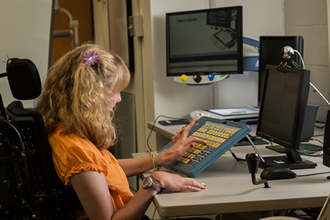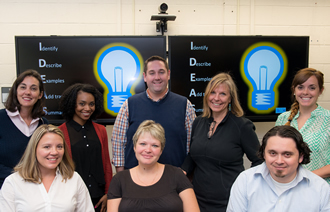Project ASCEND
The Special Education Program at George Mason University was recently ranked 17th in the nation by US News and World Report and is pleased to offer fellowship funding for qualified applicants to a new, more intensive and comprehensive cohort doctoral program in high incidence disabilities to prepare individuals for special education positions in higher education.
Project ASCEND (Applying Scholarship to Create and Evaluate Next Developments in Special Education) is funded by the US Department of Education, Office of Special Education Programs. Project ASCEND will include critically important offerings to substantially update and enhance its current doctoral program. New, research-focused courses in personnel preparation, assessment, and contemporary initiatives including culturally responsive leadership and evidence-based content that integrates the latest technological advances for problem solving contemporary special education issues will be offered. Advanced internships in high-needs schools, and ongoing cohort special education seminars and fellowship/cohort support sessions will facilitate professional development. Students will be mentored by faculty who are actively engaged in state-of-the-art teacher education, research, and culturally responsive leadership activities. The program emphasizes the balance among teaching, research, and leadership competencies to provide intensive, high quality training in all areas required to prepare individuals for faculty positions in higher education.
Project Benefits
- Up to $21,000 in fellowship funding
- Tuition coverage
- Research supplies
- Travel support to state/national professional conferences
- Opportunities to work with faculty on research and teaching projects
- Opportunities for additional research assistantship funding
Contact:
Project Directors: Margo Mastropieri mmastrop@gmu.edu and Thomas Scruggs tscruggs@gmu.edu
Faculty Associates: Sheri Berkeley sberkele@gmu.edu, Anna Evmenova aevmenov@gmu.edu, and Kelley Regan kregan@gmu.edu





